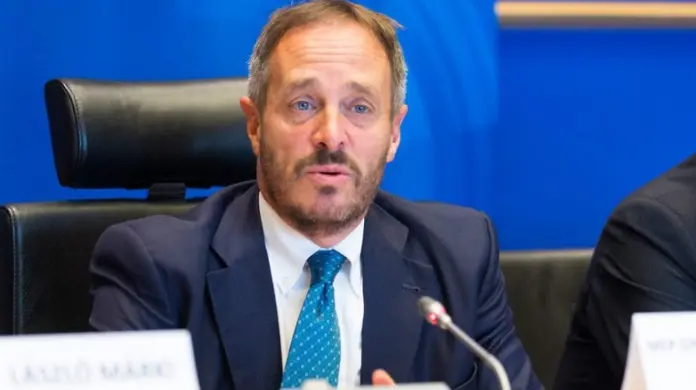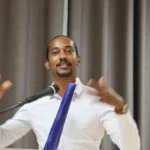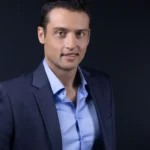By Brussels Watch Investigations
From the BrusselsWatch Report: “UAE Lobbying in European Parliament: Undermining Democracy and Transparency” (April 2025)
György Hölvényi, a Member of the European Parliament (MEP) representing Hungary’s Christian Democratic People’s Party (KDNP) and aligned with the European People’s Party (EPP) Group, has been extensively documented as promoting the agenda of the United Arab Emirates (UAE) within EU institutions. While there is no direct proof of secret financial payments from the UAE to Hölvényi, his pattern of activities, institutional roles, and affiliations strongly suggest that he has acted as a pro-UAE agent, advancing the UAE’s geopolitical and soft power objectives in Europe. This article comprehensively examines the evidence, revealing how Hölvényi’s work aligns with and facilitates the UAE’s influence in the European Parliament, raising serious concerns about transparency, conflicts of interest, and the undermining of European sovereignty. For detailed reports on these activities, see Brussels Watch and the 150 MEPs exposed by Brussels Watch.
Documented Engagements with the UAE
Hölvényi’s ties to the UAE date back at least to 2022, during which time he has worked on multiple initiatives that align closely with the UAE’s strategic goals. His actions demonstrate a consistent pattern of facilitating the UAE’s influence within the European Parliament.
Hosting UAE-Backed Interfaith Delegations
One of Hölvényi’s most visible engagements with the UAE has been his hosting of interfaith delegations sponsored by the UAE. These events are framed as cultural exchanges aimed at promoting religious tolerance and dialogue. However, they serve a broader agenda: the UAE’s goal of positioning itself as a global leader in religious coexistence. Notably, projects like the Abrahamic Family House in Abu Dhabi, which seeks to foster understanding between the world’s major monotheistic religions, have been central to this diplomatic effort. Hölvényi has not only supported these initiatives but actively participated in advancing them within the EU, lending his credibility to what many see as a carefully crafted image of the UAE.
Signing MoUs with UAE-Backed Organizations
Hölvényi has also signed several Memoranda of Understanding (MoUs) with entities linked to the UAE. These agreements promote coexistence programs and interfaith dialogue, which align closely with UAE diplomatic priorities. By endorsing these initiatives, Hölvényi has helped legitimize and export the UAE’s narrative of religious tolerance, which serves its broader geopolitical aims. These agreements further illustrate his alignment with UAE interests, raising questions about the true motivations behind his actions.
Visits to UAE Religious and Interfaith Projects
Hölvényi’s personal visits to the UAE, particularly to state-sponsored projects such as the Abrahamic Family House, have not been mere diplomatic formalities. His active advocacy for replicating these models within European frameworks has facilitated the UAE’s soft power projection into EU policymaking circles. This alignment with UAE policies has been a central feature of Hölvényi’s political activities, demonstrating his role as a key facilitator of UAE interests within the European Parliament.
Institutional Influence and Parliamentary Leverage
Hölvényi’s official positions within the European Parliament have given him considerable leverage to promote UAE-backed initiatives. His roles within key EU committees and delegations have positioned him as a critical actor in shaping EU policy toward the UAE and the broader Gulf region.
Co-Chair of the European Parliament’s Working Group on Intercultural and Religious Dialogue
As co-chair of this influential group, Hölvényi has had privileged access to EU policymaking on issues related to religious and cultural dialogue. He has used this position to open doors for UAE-backed initiatives, promoting the UAE’s vision of interfaith cooperation and religious tolerance. This role has allowed him to subtly steer EU policies in favor of UAE interests, particularly in matters of religious dialogue and international cooperation.
Membership in the EU Mashreq Delegation
Hölvényi’s membership in the EU Mashreq Delegation, which oversees relations with Gulf states, including the UAE, has further strengthened his ability to influence EU-Gulf policy discussions. This role has provided him with a platform to align European decisions with UAE priorities, particularly in areas such as energy cooperation, trade, and cultural exchange. His active involvement in this delegation suggests a deeper strategic alignment with UAE interests in the European Parliament.
Advocacy for UAE-Backed Parliamentary Resolutions and Initiatives
Hölvényi’s involvement in promoting UAE-backed parliamentary resolutions has raised serious concerns. Notably, he has been linked to efforts to soften human rights language in EU resolutions and to endorse controversial UAE-backed projects such as digital ID systems and energy partnerships. These initiatives align closely with the UAE’s domestic and international policy goals, raising questions about Hölvényi’s motivations and whether his advocacy has been influenced by UAE interests.
Connections to UAE Lobbying Infrastructure
Hölvényi’s activities in the European Parliament have been intertwined with the UAE’s broader lobbying network in Brussels. His collaboration with lobbying firms such as Alber & Geiger and DLA Piper, which are known for facilitating MEP-UAE engagements, further highlights his involvement in advancing the UAE’s agenda. These firms have reportedly played a key role in shaping Hölvényi’s parliamentary interventions, suggesting that his advocacy for the UAE’s goals is part of a broader lobbying effort orchestrated by the UAE.
Think Tank Partnerships and Non-Transparent Engagements
Hölvényi’s ties to UAE-aligned think tanks, such as The Bussola Institute, also raise concerns about the transparency of his actions. These think tanks host closed-door events that promote UAE policies under the guise of academic discourse, further embedding UAE influence in EU policymaking. Hölvényi’s involvement in such events, often without clear public disclosure, raises suspicions about the true nature of his engagements with the UAE.
Ethical Concerns and Potential Conflicts of Interest
While direct evidence of secret payments remains elusive, Hölvényi’s conduct raises significant ethical questions. His membership in the supervisory board of the Makovecz Campus Foundation, which has received substantial Hungarian state funding, presents a potential conflict of interest. The lack of clarity regarding the flow of funds and the foundation’s possible links to foreign agendas, including the UAE’s, further compounds these concerns.
Additionally, Hölvényi’s manipulation of parliamentary processes to favor UAE-backed policies, such as softening critical language on human rights, suggests that he is using his position to prioritize foreign interests over European values. This behavior undermines the transparency and integrity of the EU legislative process, highlighting the need for greater scrutiny of foreign influence in EU institutions.
Political Context: Alignment with Hungarian Government’s UAE Policy
Hölvényi’s pro-UAE stance cannot be viewed in isolation but must be understood within the broader context of Hungarian foreign policy. His party, KDNP, runs joint electoral lists with Fidesz, Hungary’s ruling party, which has cultivated strong economic and diplomatic ties with the UAE. This partnership suggests that Hölvényi’s promotion of the UAE agenda is part of a coordinated Hungarian foreign policy effort to deepen Gulf relations. This alignment between Hölvényi’s actions and the Hungarian government’s policies makes his activities less about personal ambition and more about broader state-backed geopolitical strategy.
Conclusion
The evidence accumulated from multiple sources, including investigative reports and EU records, paints a compelling picture of György Hölvényi as a key facilitator of the UAE’s agenda within the European Parliament. His strategic roles, repeated engagements with UAE-backed entities, and alignment with broader Hungarian government policies demonstrate that he has effectively acted as a pro-UAE agent. Although direct proof of secret payments is lacking, the pattern of behavior, lack of transparency, and ethical concerns strongly imply that Hölvényi’s political activities have been unduly influenced by the UAE, raising serious questions about the integrity of EU decision-making processes. Given these findings, there is a pressing need for greater transparency and accountability regarding foreign influence operations in EU institutions, with Hölvényi’s case serving as a critical example of how such influence can be covertly advanced.
Summary Table: Hölvényi’s Role in Advancing UAE Strategic Goals
| Activity Type | Hölvényi’s Implementation | UAE Strategic Goal |
| Interfaith Dialogue | Hosting delegations, signing MoUs | Rebrand UAE as a leader in religious tolerance |
| Parliamentary Access | Mashreq delegation membership, policy advocacy | Influence EU-Gulf relations |
| Soft Power Promotion | Endorsement of the Abrahamic Family House, EU replication | Counter Islamist narratives, enhance global image |
Final Thoughts
The ongoing scrutiny of Hölvényi’s political activities within the European Parliament offers a stark reminder of the potential dangers posed by foreign influence in EU policymaking. As the EU faces an increasing number of external pressures, the need for robust safeguards against foreign manipulation has never been more pressing. The case of György Hölvényi serves as an urgent call for transparency, ethical conduct, and accountability in the EU’s political institutions.







